Abstract
Chemotherapeutic agents are used widely in clinical medicine for the treatment of conditions where diminution of the host immune response is a goal. The clinical use of immunosuppression is indicated for immunologically mediated disease, lymphoproliferative diseases, and prevention of graft rejection. Five categories of agents are useful for these purposes; they are ionizing irradiation, corticosteroids, biological alkylating agents, antilymphocyte sera and antimetabolites. While the specific molecular action of many of these drugs is known, how they affect cellular events in immune responses is less clear. One of the unfortunate sequelae of chemotherapy induced immunosuppression is an increased susceptibility of the host to opportunistic pathogens or malignancies. Specific methods are described for monitoring the various parameters of both humoral and cellular immunity. Studies of immunologic function in lymphoma patients and cardiac transplant patients treated with immunosuppressive drugs have shown specific defects in cell mediated immunity to herpes viruses which may relate to their increased susceptibility to infection by these agents.
Full text
PDF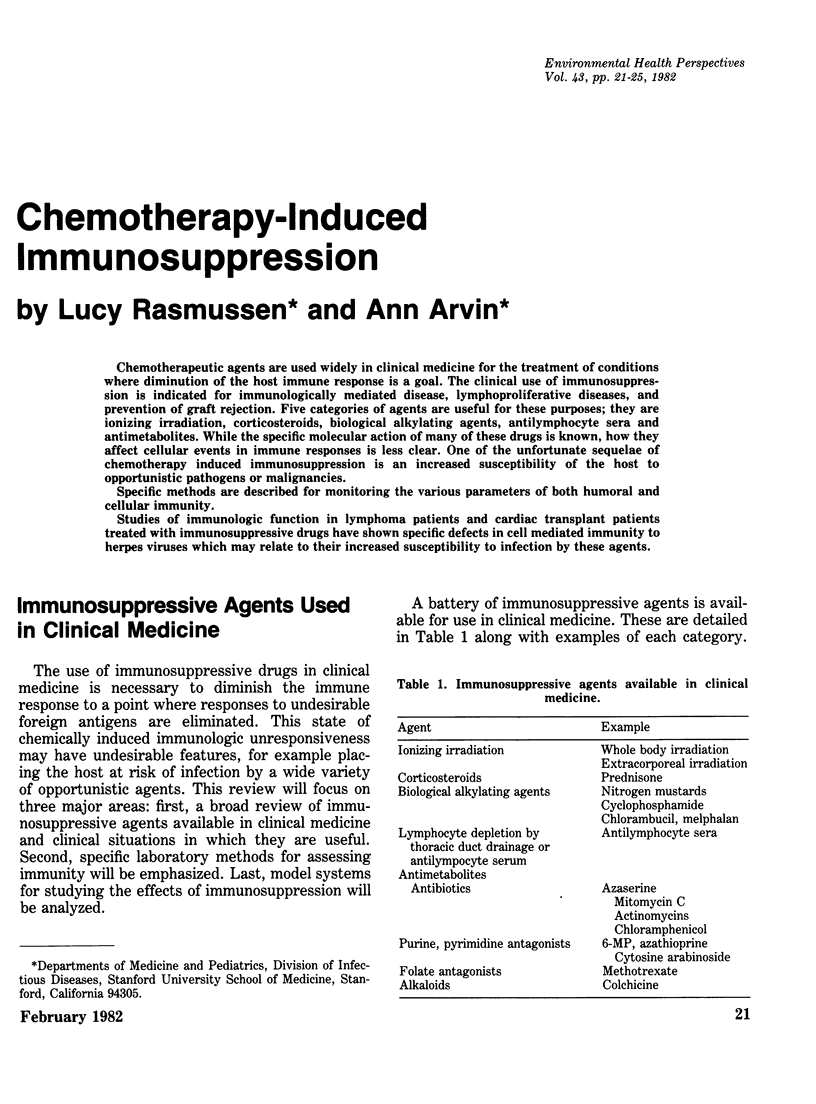
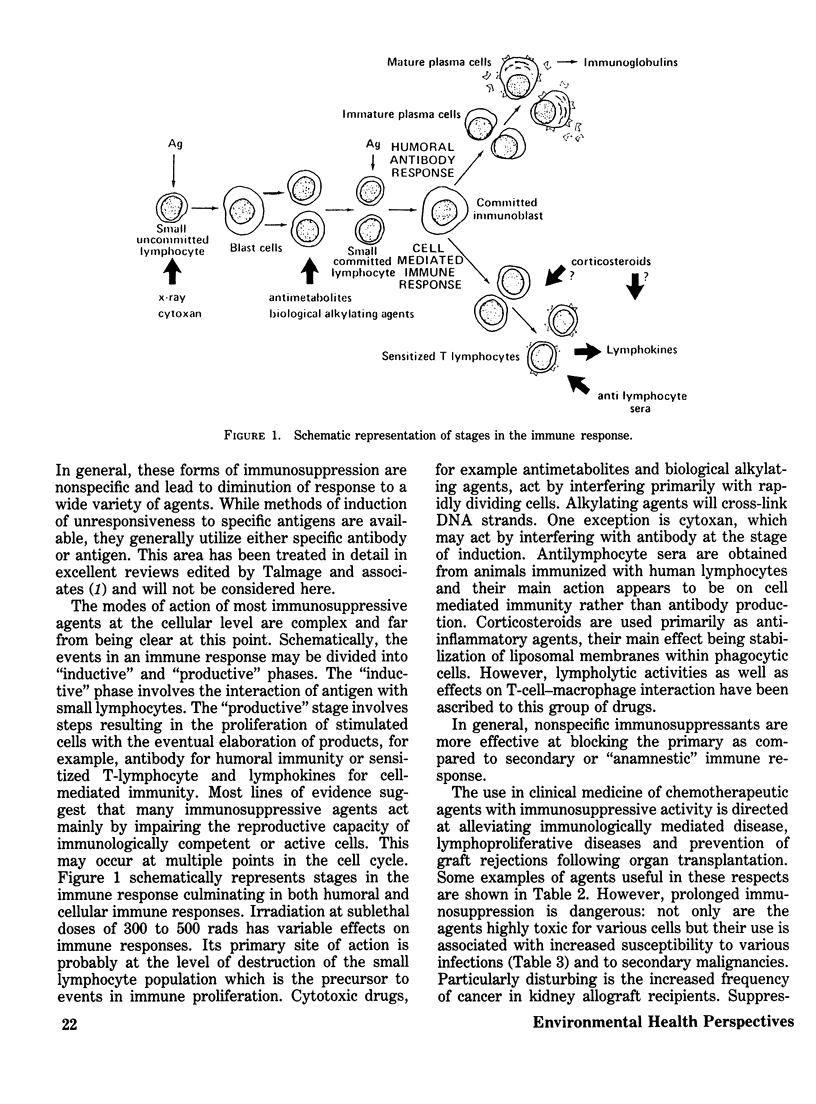
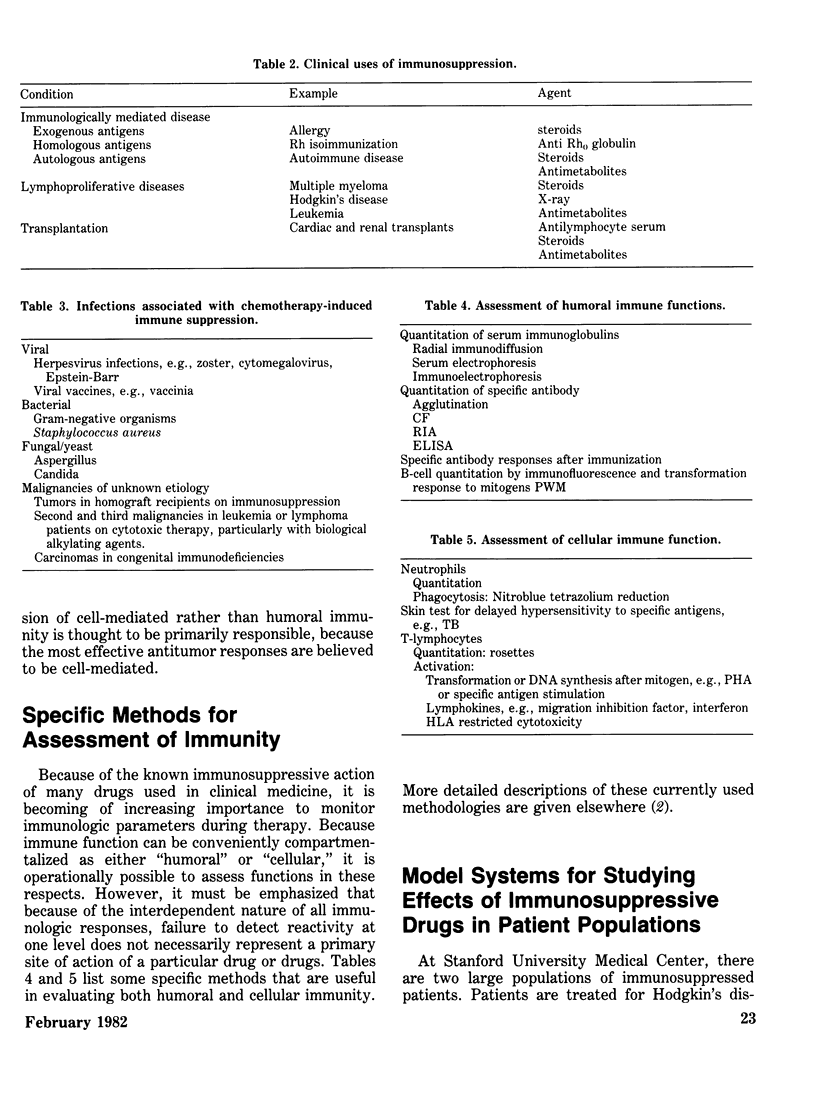
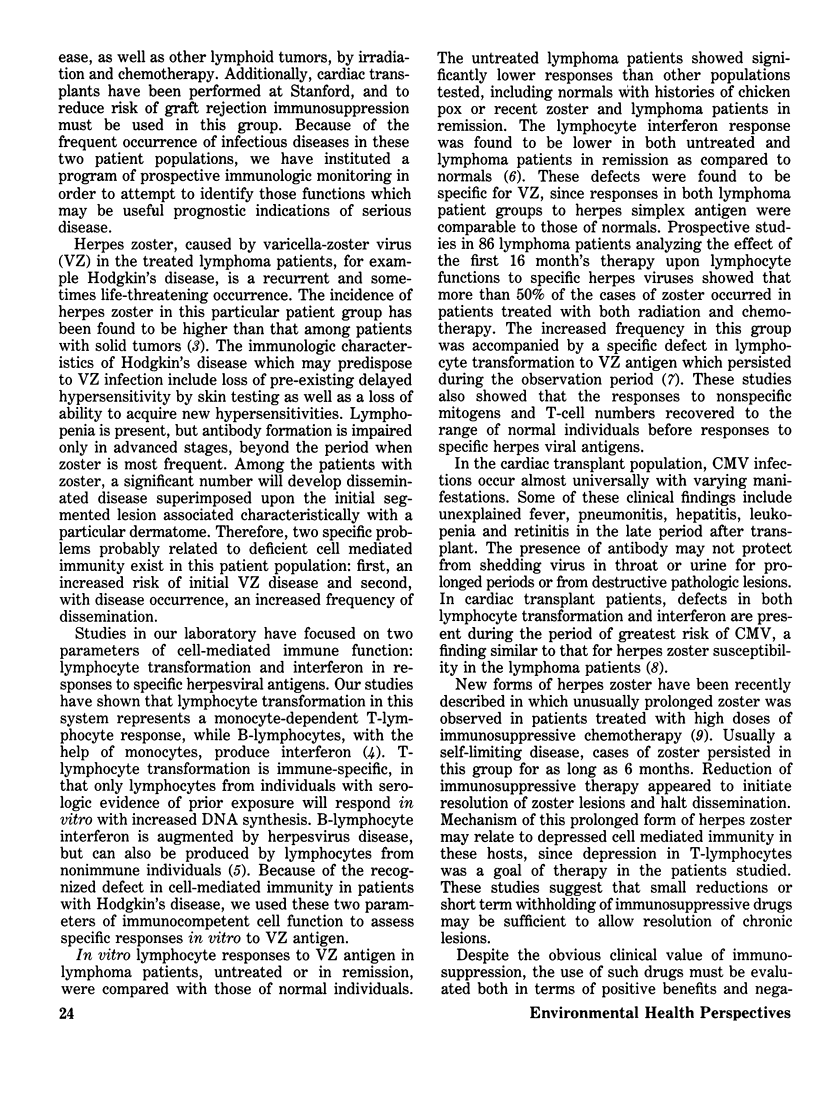
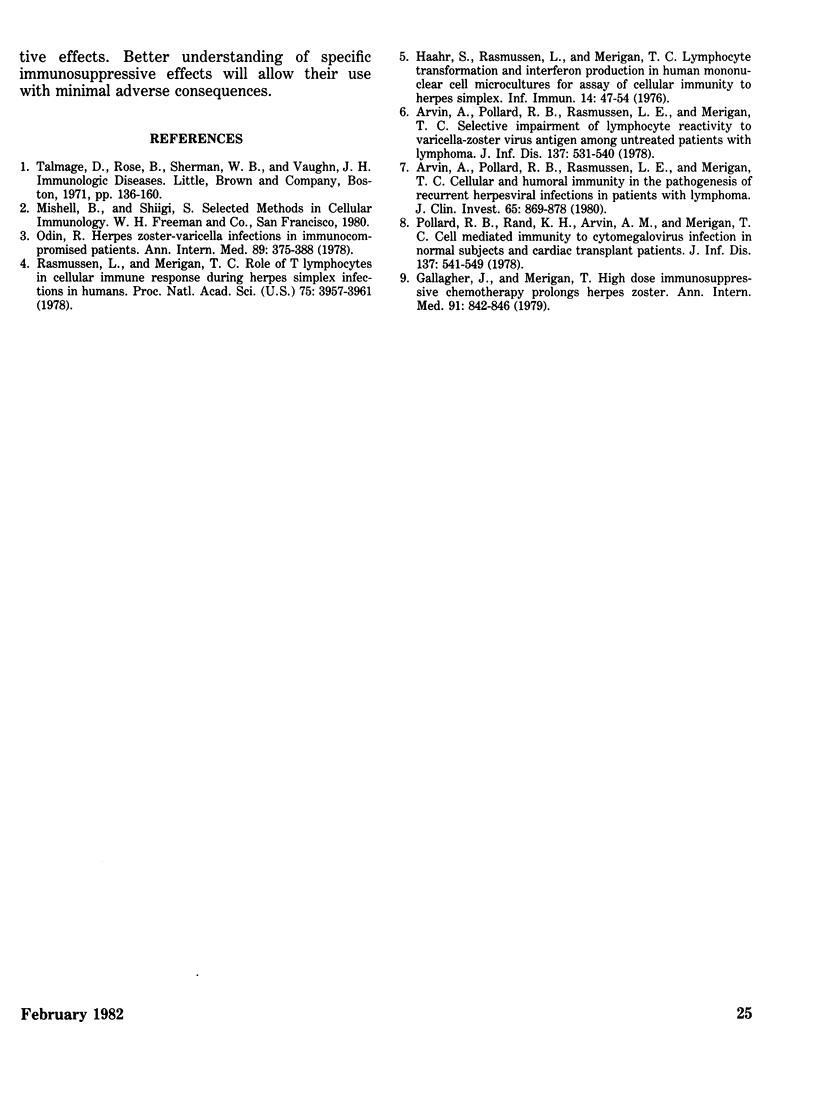
Selected References
These references are in PubMed. This may not be the complete list of references from this article.
- Arvin A. M., Pollard R. B., Rasmussen L. E., Merigan T. C. Cellular and humoral immunity in the pathogenesis of recurrent herpes viral infections in patients with lymphoma. J Clin Invest. 1980 Apr;65(4):869–878. doi: 10.1172/JCI109739. [DOI] [PMC free article] [PubMed] [Google Scholar]
- Arvin A. M., Pollard R. B., Rasmussen L. E., Merigan T. C. Selective impairment of lymphocyte reactivity to varicella-zoster virus antigen among untreated patients with lymphoma. J Infect Dis. 1978 May;137(5):531–540. doi: 10.1093/infdis/137.5.531. [DOI] [PubMed] [Google Scholar]
- Dolin R., Reichman R. C., Mazur M. H., Whitley R. J. NIH conference. Herpes zoster-varicella infections in immunosuppressed patients. Ann Intern Med. 1978 Sep;89(3):375–388. doi: 10.7326/0003-4819-89-3-375. [DOI] [PubMed] [Google Scholar]
- Gallagher J. G., Merigan T. C. Prolonged herpes-zoster infection associated with immunosuppressive therapy. Ann Intern Med. 1979 Dec;91(6):842–846. doi: 10.7326/0003-4819-91-6-842. [DOI] [PubMed] [Google Scholar]
- Haahr S., Rasmussen L., Merigan T. C. Lymphocyte transformation and interferon production in human mononuclear cell microcultures for assay of cellular immunity to herpes simplex virus. Infect Immun. 1976 Jul;14(1):47–54. doi: 10.1128/iai.14.1.47-54.1976. [DOI] [PMC free article] [PubMed] [Google Scholar]
- Pollard R. B., Rand K. H., Arvin A. M., Merigan T. C. Cell-mediated immunity of cytomegalovirus infection in normal subjects and cardiac transplant patients. J Infect Dis. 1978 May;137(5):541–549. doi: 10.1093/infdis/137.5.541. [DOI] [PubMed] [Google Scholar]
- Rasmussen L., Merigan T. C. Role of T lymphocytes in cellular immune responses during herpes simplex virus infection in humans. Proc Natl Acad Sci U S A. 1978 Aug;75(8):3957–3961. doi: 10.1073/pnas.75.8.3957. [DOI] [PMC free article] [PubMed] [Google Scholar]


